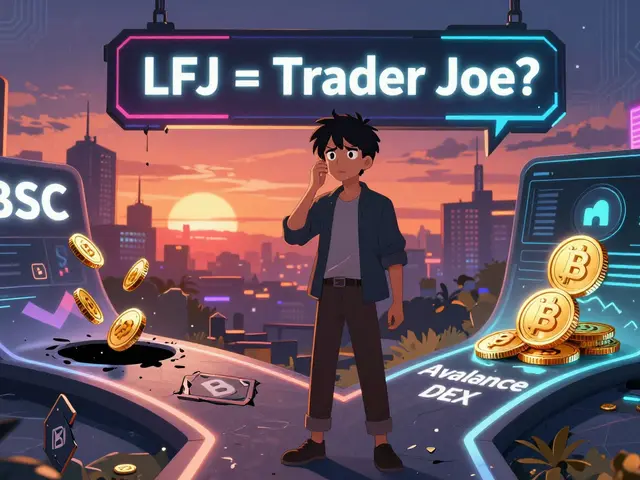GCC Crypto Regulation Checker
Crypto Activities Overview
- Holding cryptocurrency (e.g., Bitcoin)
- Trading cryptocurrency on licensed exchanges
- Using banks to deposit/withdraw cryptocurrency
- Tokenized assets (shares, bonds)
- Crypto mining
- CBDC usage (e.g., digital dirham)
Regulatory Summary
Select a country and click 'Check Regulations' to see the specific rules.
When you hear that crypto is banned in the Middle East, it sounds simple. But the truth? It’s not a blanket ban. It’s a maze of rules, exceptions, and quiet exceptions that most people don’t see. In 2025, if you’re trying to use Bitcoin through a bank in Dubai, Riyadh, or Doha, you’re not just breaking the rules-you’re walking into a legal gray zone that could cost you your account, your funds, or worse.
It’s Not a Ban. It’s a Filter.
Most people think Middle Eastern countries say ‘no’ to crypto. That’s not quite right. They say ‘no’ to unregulated crypto banking. But they’re quietly building the infrastructure to handle digital assets-just not the kind you buy on Binance or Coinbase. Take Saudi Arabia. The Central Bank (SAMA) doesn’t let banks touch Bitcoin, Ethereum, or any other public cryptocurrency. But they run a fintech sandbox where startups test blockchain tech under watchful eyes. They’re also part of mBridge, a cross-border CBDC project with China, UAE, and Thailand. That’s not a ban. That’s a controlled experiment. They want the tech, just not the wild west of retail crypto. The same goes for the UAE. Banks can’t process crypto payments unless they’re using a government-approved token like the Dirham Payment Token. That’s not a ban on blockchain-it’s a ban on unlicensed players. The Central Bank of the UAE has been running interoperability tests since 2019. They’re not resisting change. They’re directing it.Qatar: The Strictest, But Changing Fast
Qatar used to be the hardest line. In 2020, the Qatar Financial Centre banned all virtual asset services-no Bitcoin, no stablecoins, no crypto exchanges. Financial institutions were told: don’t touch it. Don’t even look at it. But in September 2024, everything shifted. They passed the Digital Asset Regulations 2024. Now, tokenized assets-like digital shares, bonds, or real estate titles-are legal. Smart contracts are recognized. But Bitcoin? Ethereum? Stablecoins? Still banned. They call them ‘Excluded Tokens.’ Why? Because Qatar isn’t against digital assets. They’re against unbacked, volatile currencies. They want asset-backed tokens issued by licensed firms, not decentralized coins traded by random users. Their new framework, due in Q2 2025, will define exactly how tokenization works under their financial free zone. This isn’t a step back. It’s a pivot toward institutional-grade digital finance.Kuwait: Electricity as a Weapon
Kuwait doesn’t waste time with regulations. They use electricity bills. In 2023, they cracked down on crypto mining. Not with fines or lawsuits. They just started monitoring power usage. Mining rigs? They’re energy hogs. Within months, local electricity consumption dropped by 55%. That’s not a coincidence. That’s enforcement. The government didn’t need to write new laws. They just used existing power regulations to shut down mining farms. No licenses. No appeals. Just cut the power. It’s the most effective crypto ban in the region. And it worked. Kuwait’s stance is simple: crypto mining is a public resource drain. No exceptions. No gray areas. Even if you’re mining for fun, you’re breaking the rules.Bahrain: The Middle Ground
Bahrain is the exception that proves the rule. While other GCC countries say ‘no’ to crypto banking, Bahrain says ‘yes-if you follow our rules.’ Their Central Bank launched the Crypto-Asset (CRA) module in 2020. It’s a licensing system. Banks and financial firms can apply to offer crypto services-trading, custody, even staking-but only if they pass strict AML and KYC checks. They’ve partnered with JP Morgan on cross-border payment tests. They’re running CBDC pilots. They’re not avoiding crypto. They’re building a regulated version of it. If you want to do crypto banking in the GCC, Bahrain is the only place where it’s legally possible-with a license. No other country in the region offers that level of access.
Oman and the Quiet Path
Oman doesn’t make headlines. But they’re watching. They’re not banning crypto outright. They’re not licensing it either. They’re waiting. They’re part of the mBridge CBDC project. They’re testing blockchain for cross-border payments. They’ve signaled they’ll follow the UAE and Bahrain’s lead. Their regulations are still in draft, but the direction is clear: no unlicensed crypto banking. But licensed, tokenized assets? That’s coming.Why This Matters: It’s Not About Crypto. It’s About Control.
These bans aren’t about fear of technology. They’re about control of money. The GCC countries don’t want their financial systems dependent on Western banks or U.S. dollar settlements. They want to build their own digital infrastructure. That’s why they’re pouring billions into CBDCs-central bank digital currencies that work like digital cash, but are fully controlled by the state. They see private cryptocurrencies as a threat to monetary sovereignty. Bitcoin can’t be taxed. Ethereum can’t be frozen. Stablecoins can bypass sanctions. That’s not a bug. It’s a feature-for users. But for governments? It’s a risk. So they draw a line: You can use blockchain. You can use tokenized assets. You can even use digital money-if we issue it. But you can’t use decentralized coins through our banks. That’s the deal.What Happens If You Try to Use Crypto Through a Bank?
If you’re in Saudi Arabia and you send $10,000 in Bitcoin to your bank account, expect a freeze. Your bank will flag it. They’re required to report suspicious activity. You might get a call from SAMA. Your account could be suspended. You might be asked to prove the source of funds. In Qatar, it’s worse. If your bank detects any crypto transaction, even a tiny one, they’re legally required to shut it down. No warnings. No second chances. In the UAE, if you use an unlicensed exchange, your bank can cut you off. You’re not breaking the law by owning crypto-but you’re breaking banking rules by moving it through a regulated institution. The message is clear: keep your crypto off the banking system. Use peer-to-peer. Use local exchanges. But don’t try to wash it through a bank. You won’t get away with it.
The Future: CBDCs Are the Real Crypto
The real story here isn’t the bans. It’s what’s being built behind them. The mBridge project isn’t a side project. It’s a global experiment. It’s testing how central banks can settle trillions in cross-border payments without relying on SWIFT or U.S. banks. Saudi Arabia, UAE, Bahrain, and Oman are all in. China and Thailand are too. By 2026, you might not need Bitcoin to send money from Dubai to Bangkok. You’ll use a digital dirham or riyal-issued by the central bank, traceable, instant, and compliant. That’s the future these countries are betting on. Not decentralized finance. Not crypto speculation. But state-backed digital money. The bans on crypto banking? They’re temporary. The CBDCs? They’re permanent.What Should You Do?
If you’re in the GCC and you own crypto:- Don’t try to deposit it into your bank account.
- Don’t use local banks to buy or sell crypto.
- Use peer-to-peer platforms or licensed exchanges outside the banking system.
- Keep records. If you’re ever questioned, you need to prove it’s not illicit.
- Watch for official CBDC launches. That’s where the real opportunity lies.
- Don’t assume crypto is banned. Assume it’s regulated.
- Look at Bahrain first. It’s the only place with a clear licensing path.
- Consider tokenizing assets-shares, property, invoices. That’s legal, growing, and encouraged.
- Stay away from stablecoin operations. They’re still excluded in most places.
Frequently Asked Questions
Is cryptocurrency illegal in the Middle East?
No, owning cryptocurrency isn’t illegal in any GCC country. But using banks to trade, deposit, or withdraw crypto is banned in most places. You can hold Bitcoin in a private wallet, but you can’t move it through a Saudi or Qatari bank without risking account closure.
Can I use Binance or Coinbase in the UAE or Saudi Arabia?
You can access Binance or Coinbase from your phone or laptop, but you can’t link them to your local bank account. Many users do this via peer-to-peer trading or third-party payment processors. But if your bank detects crypto activity, they may freeze your account or report you.
Why do these countries allow CBDCs but ban Bitcoin?
Because CBDCs are controlled by the government. Bitcoin isn’t. Governments want digital money that’s traceable, tax-ready, and can be frozen if needed. Bitcoin offers none of that. CBDCs give them the benefits of blockchain without losing control over the money supply.
Is crypto mining banned in the Middle East?
In Kuwait, yes-strictly enforced through electricity monitoring. In Saudi Arabia and the UAE, it’s not explicitly banned, but it’s discouraged. Mining rigs use too much power, and regulators don’t want to support energy-intensive activities that benefit foreign blockchains. Most mining operations have shut down or moved abroad.
Can I invest in tokenized assets like digital stocks in Qatar or Saudi Arabia?
Yes-this is the new frontier. Qatar’s 2024 regulations allow tokenized shares and bonds. Saudi Arabia’s fintech sandbox is testing similar models. These are not cryptocurrencies. They’re digital versions of real assets, issued by licensed firms under strict oversight. This is where institutional investment is heading.
Will these bans ever be lifted?
Not in the way most people expect. The bans on unlicensed crypto banking will likely stay. But licensed, regulated digital asset services-like tokenized securities and CBDCs-will expand. The future isn’t Bitcoin in banks. It’s government-backed digital money replacing traditional banking rails.












Paul Lyman
October 30, 2025 AT 06:13 AMYo this is actually wild how they're building digital cash but banning Bitcoin like it's a virus 😅 I get it though - if you're trying to control your economy, you don't want some random guy flipping ETH through a bank account. But come on, the real innovation is happening in Bahrain. Why aren't more people talking about their CRA module? It's the only real path forward in the GCC.
Also, Kuwait cutting power to miners? That's next-level efficiency. No laws needed, just unplug the grid. Genius. Or terrifying. Depends if you're mining or not.
Frech Patz
October 30, 2025 AT 21:49 PMWhile the article presents a compelling narrative regarding regulatory divergence across GCC states, it is imperative to distinguish between de jure prohibition and de facto suppression. The legal frameworks in Qatar and Saudi Arabia, for instance, do not explicitly criminalize private ownership of cryptocurrencies, yet institutional access is systematically obstructed through banking intermediation controls. This constitutes a form of regulatory capture rather than outright prohibition.
Furthermore, the emphasis on CBDCs as a superior alternative overlooks the fundamental philosophical divergence between state-controlled monetary systems and decentralized trustless networks. One is a tool of governance; the other, a challenge to it.
Derajanique Mckinney
October 31, 2025 AT 05:29 AMso like... qatar banned bitcoin but lets you tokenize real estate?? like wtf??
imagine owning a digital version of your apartment but can't buy a single btc. i'm so confused. also why is everyone so scared of crypto?? it's just code lol 🤷♀️
Rosanna Gulisano
November 1, 2025 AT 19:22 PMLetting banks handle crypto is a disaster waiting to happen. People lose everything. Governments are right to block it. No exceptions.
CBDCs are the only safe way forward. End of story.
gurmukh bhambra
November 3, 2025 AT 06:08 AMWait wait wait - you think this is just about control? Nah. This is all part of the New World Order. The Saudis and UAE are working with China on mBridge because they’re trying to kill the dollar. And Bitcoin? It’s the only thing that can’t be tracked. That’s why they hate it. The Fed and IMF are behind this whole ‘regulated crypto’ scam to trap you into digital surveillance currency. You think you’re safe with a CBDC? You’re just giving them your entire life history in real time. Wake up.
Also, I heard the UAE central bank uses AI to scan your WhatsApp for crypto keywords. True story. I know a guy.
Sunny Kashyap
November 3, 2025 AT 22:31 PMUSA and west always say crypto is freedom. But in real world, when you see how much power it gives to criminals and hackers, you understand why middle east says no.
Our oil money should not go to some guy in Ukraine mining with stolen electricity. CBDC is better. Simple.
james mason
November 4, 2025 AT 02:34 AMOh wow. You mean to tell me that a bunch of oil-rich autocracies are building their own digital financial infrastructure because they’re terrified of losing monetary sovereignty? How utterly… quaint. I mean, I suppose it’s endearing that they think they can compete with the global financial architecture - but really, they’re just trying to replicate the U.S. dollar’s hegemony with a blockchain sticker on it.
Meanwhile, real innovation happens in places like Switzerland or Singapore, where you don’t need a government license to transact. Bahrain? That’s not a financial hub. It’s a regulatory zoo.
Anna Mitchell
November 5, 2025 AT 04:19 AMThis is actually so hopeful. I love how these countries aren’t just rejecting tech - they’re shaping it. They’re not scared of change, they’re just being smart about it.
Tokenized assets? CBDCs? That’s the future. And honestly? I’m excited to see how it unfolds. We all need to stop seeing crypto as this wild rebellion and start seeing it as a tool - one that can be used responsibly.
Pranav Shimpi
November 5, 2025 AT 23:44 PMGuys you're missing the point. The real story is the sandbox in Saudi. They're not banning blockchain - they're testing enterprise-grade tokenization for bonds and shares. That’s where the money is. Bitcoin? Irrelevant. You can’t tokenize a stock on Ethereum without a legal wrapper. The regulators know this. That’s why they’re letting firms build on private chains with KYC baked in.
Also, if you're mining in UAE - you're gonna get flagged. Power consumption logs are tied to national ID. I worked with a firm that had to shut down 30 rigs in Dubai last year. No warning. Just a letter from SAMA. Don’t test it.
jummy santh
November 6, 2025 AT 07:55 AMAs a Nigerian who has seen the chaos of unregulated crypto in Africa - I applaud the GCC approach. In Nigeria, people lost life savings to pump-and-dump tokens, and banks were powerless. Here, they are not banning innovation - they are protecting their citizens.
CBDCs are not surveillance tools. They are financial inclusion tools. Imagine a child in rural Oman receiving school funds via a digital riyal, traceable, secure, and free from middlemen. That is progress.
Do not confuse control with oppression. Some systems must be guarded to serve the many, not the few who profit from chaos.
Kirsten McCallum
November 7, 2025 AT 11:48 AMPeople think they’re smart for using crypto. They’re just addicted to gambling disguised as finance.
CBDCs are the only moral choice. Everything else is delusion.
Henry Gómez Lascarro
November 8, 2025 AT 02:55 AMLet me just say - this entire article is a propaganda piece disguised as journalism. You call Bahrain the 'exception'? Please. They’re a tax haven with a fancy fintech app. Their licensing system is a joke - any offshore shell company can get approved if they pay the right fees. And you think the mBridge project is about 'cross-border efficiency'? It’s a geopolitical power play to undermine the dollar, and you’re here acting like it’s some noble innovation.
Meanwhile, in the real world, Bitcoin is still the only decentralized, censorship-resistant asset. The fact that these regimes are terrified of it proves they know it’s a threat. They’re not building the future - they’re trying to bury it under layers of bureaucracy and state control. And you call that progress? That’s not innovation. That’s fear dressed up as policy.
Also, the 'tokenized assets' they’re pushing? Those are just digital IOUs. They’re not even real blockchain. They’re centralized databases with a fancy name. Bitcoin isn’t perfect - but at least it’s not controlled by a central bank that can freeze your account because you criticized the crown prince. So don’t act like this is some enlightened path. It’s just authoritarianism with a blockchain logo.
Will Barnwell
November 9, 2025 AT 09:12 AMWait, so you're saying you can't use crypto through a bank but you can own it? That's not a ban, that's just bad UX.
And Bahrain's licensing thing? Yeah, it's the only option - but it's basically a pay-to-play system. You need a million-dollar compliance budget to even apply. Meanwhile, the average guy trying to send crypto to his cousin in Egypt? Still stuck.
Also, 'tokenized real estate'? That's just a fancy word for bonds. You're not building a new financial system - you're just repackaging old ones with blockchain buzzwords. CBDCs are just digital cash. We already had cash. We just wanted it to be digital. Not a surveillance tool.
And Kuwait shutting off power? That's not regulation. That's a power outage with a press release.